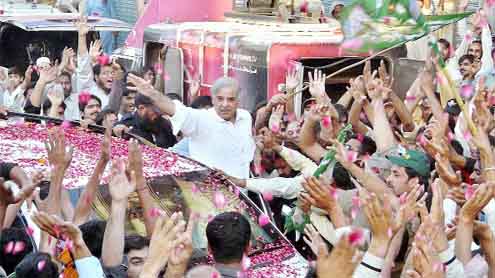 RIYADH: A top Saudi official said here Monday that the Kingdom’s new economic cities “will be model for future cities” with the Saudi Arabian General Investment Authority (SAGIA) expecting these cities to contribute $150 billion to gross domestic product (GDP) and create more than one million jobs by 2020. These cities will have advantage of availing 600 types of services, right from logistics to telecommunication and any sort of emergency; within 60 minutes of real time, said Mohanud Helal, secretary general of Economic Cities Authority of Saudi Arabia.Helal, while speaking at the GCF on the topic “Cities for the future”, said, “the goal of the Saudi government is to create more social and economic harmony by building these cities in less developed areas of the Kingdom.”He said that the Saudi government was investing billions of dollars to build the new economic cities. The move is also an attempt to diversify the economy by moving GDP away from the hydrocarbon sector (oil accounts for 94 percent of the country’s export), he added.The panel discussion was joined by David Gensler, executive director of Gensler company; Thomas Krens, former director of Solomon R. Guggenheim; Timothy C. Hester, chairman of Covington & Burling LLP; and Wim Elfrink, executive vice president of Cisco Services. Laura Tyson, professor at the University of California conducted the panel discussion, which was followed by a question and answer session.Speaking on his part, Elfrink said, “the future cities will be more closely networked online with over three billion people using Internet within the next 10 years globally.” Moreover, there is a common consensus among planners of future cities in terms of saving energy by 50 percent, said Elfrink, while referring to the population growth globally. He said that the population of the Kingdom would grow more rapidly as 50 percent of the country’s population are below 25 years of age.There is a need to bring together a diverse group of practitioners, researchers and policy-makers who share a vision of an improved urban landscape for future generations, said Gensler, another panelist, while referring to integrated seawater project launched in Egypt by his company. Krens, on the other hand, more focused on global cultural asset management to foster innovation.
RIYADH: A top Saudi official said here Monday that the Kingdom’s new economic cities “will be model for future cities” with the Saudi Arabian General Investment Authority (SAGIA) expecting these cities to contribute $150 billion to gross domestic product (GDP) and create more than one million jobs by 2020. These cities will have advantage of availing 600 types of services, right from logistics to telecommunication and any sort of emergency; within 60 minutes of real time, said Mohanud Helal, secretary general of Economic Cities Authority of Saudi Arabia.Helal, while speaking at the GCF on the topic “Cities for the future”, said, “the goal of the Saudi government is to create more social and economic harmony by building these cities in less developed areas of the Kingdom.”He said that the Saudi government was investing billions of dollars to build the new economic cities. The move is also an attempt to diversify the economy by moving GDP away from the hydrocarbon sector (oil accounts for 94 percent of the country’s export), he added.The panel discussion was joined by David Gensler, executive director of Gensler company; Thomas Krens, former director of Solomon R. Guggenheim; Timothy C. Hester, chairman of Covington & Burling LLP; and Wim Elfrink, executive vice president of Cisco Services. Laura Tyson, professor at the University of California conducted the panel discussion, which was followed by a question and answer session.Speaking on his part, Elfrink said, “the future cities will be more closely networked online with over three billion people using Internet within the next 10 years globally.” Moreover, there is a common consensus among planners of future cities in terms of saving energy by 50 percent, said Elfrink, while referring to the population growth globally. He said that the population of the Kingdom would grow more rapidly as 50 percent of the country’s population are below 25 years of age.There is a need to bring together a diverse group of practitioners, researchers and policy-makers who share a vision of an improved urban landscape for future generations, said Gensler, another panelist, while referring to integrated seawater project launched in Egypt by his company. Krens, on the other hand, more focused on global cultural asset management to foster innovation.
Speaking about the future cities from a legal perspective, Hester, who is a lawyer by profession, said that the rule of law would be essential for any future model city. He said that he was establishing his company’s chapter in King Abdullah Financial District in Riyadh to work closely with the Kingdom. Some of the speakers presented slides to illustrate their point of views.They also identified some areas of significant challenge that have to be taken into account when creating a strategy for the future. Some suggested that instead of migrating to cities, people should industrialize the farm communities they already lived in. Some admired the intellect and technological superiority of urban communities, while some lamented their overcrowding and ugliness during the discussions with the audience – Arabnews











